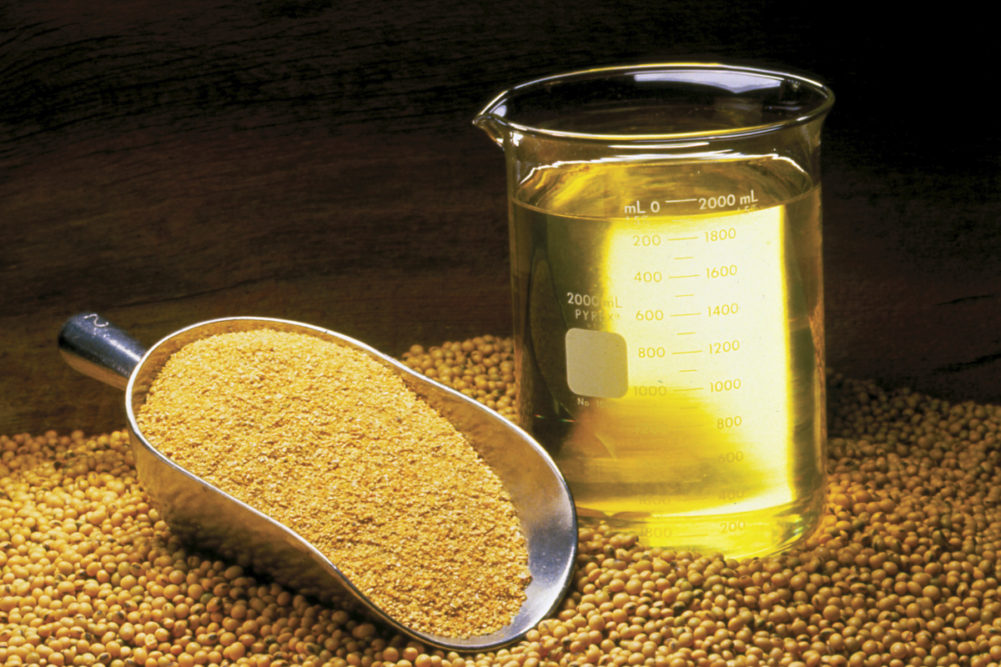KANSAS CITY, MISSOURI, US — As anticipated, the Environmental Protection Agency on Dec. 7 issued Renewable Fuel Standard renewable volume obligations (RVOs) for refiners, triggering powerful reactions up and down the grain-based foods chain.
 Josh SoslandThe proposal for 2022, still subject to a comment period before finalization, would be 3.5 billion gallons, or 20%, greater than the volume of renewable fuels used in 2020. It comes amid prices well above historical averages. As of mid-month, crude soybean oil prices in Illinois were 58¢ a pound, up 15¢ from a year earlier and up 27¢, or 86%, from the average price of 31¢, from 2015-20.
Josh SoslandThe proposal for 2022, still subject to a comment period before finalization, would be 3.5 billion gallons, or 20%, greater than the volume of renewable fuels used in 2020. It comes amid prices well above historical averages. As of mid-month, crude soybean oil prices in Illinois were 58¢ a pound, up 15¢ from a year earlier and up 27¢, or 86%, from the average price of 31¢, from 2015-20.Given surging demand for soybean oil together with the elevated bakery shortening prices, the proposal was sharply criticized by bakers and other food processors.
Robb MacKie, president and chief executive officer of the American Bakers Association, decried the EPA’s “whopping” increase in advanced biofuel RVOs and said the bakers are “extremely disappointed that the EPA’s proposal missed an opportunity to provide immediate relief and ease the impacts of growing food inflation and supply concerns for American families.”
Advocating a freeze in the RVOs until more oilseed refining capacity comes on line in coming years, the bakers urged the EPA to show flexibility during the interim while maintaining a focus on its long-term renewable fuels and climate change abatement ambitions.
Viewed alone, the bakers’ position makes practical and political sense, given the public’s mounting nervousness over the highest levels of inflation in a generation.
Other stakeholder groups, including growers, have strongly opposed any dialing back of the pace of RVO increases. The growers contend tight refining capacity is a necessity if investment plans for new production capacity are to materialize.
Having suffered in recent years because of volatility in export soybean, swings fueled by the trade war launched against China in recent years, growers are keen on maximizing domestic demand. Even before bakers and others sought to freeze the RVO levels, soybean growers had been fighting efforts by small refiners to secure temporary exemptions from their obligations. Growers contend such exemptions “erode the integrity of the RFS,” and larger refiners have expressed concern over the reliability of biofuel markets that will require the investment of billions of dollars in long-lived assets.
While sympathetic over the impact on consumers of surging edible oil prices, crushers note that reality for end users is more complex. Rapidly rising demand for oils is creating a glut of soybean meal, putting pressure on animal feed costs and presumably, over time, on meat prices consumers will need to pay.
Lost in the back and forth over the RVOs are the global forces driving strong prices for US edible oils. Viewed alone, the supply/demand balance for US soybean oil would not appear to justify record or near record high prices. The carryover of soybean oil on Oct. 1, 2022, is forecast at 1.91 billion pounds, down from 2.18 billion in 2021 but above carryovers of 1.85 billion in 2020 and 1.78 billion in 2019. Soybean oil supplies in 2021-22 were forecast at a record high 28.3 billion pounds.
The principal driver in edible oil markets has been tightening global palm oil supplies, the largest edible oil globally. Production in recent years has fallen short of expectations, in part because of pandemic-related labor shortages on plantations. Meanwhile palm oil global consumption has been rising rapidly — up over the past six years.
Other factors have kept global edible oil markets on edge, including a small canola crop in Canada and disastrous sunflower seed crop in Russia. As a result, export demand for US soybeans and soybean oil have been unusually strong.
If global supplies of edible oils begin catching up with demand over the next year or so, bakers and consumers will gain much needed relief. Until then, volatility and abnormally high prices are likely to be market features purchasing executives are forced to address.
Josh Sosland is president of Sosland Publishing Company, editor of Milling & Baking News and Food Business News magazines, sister publications of World Grain, and has been a member of the editorial staff of Sosland for 35 years.




